Nearly everyone has holes in their budgets. And as with other kinds of leaks, you may have hardly noticed some of them. But those small drips can quickly add up to big bucks. The trick is to find the holes and plug them so you can keep more money in your pocket. That extra cash could be the ticket to finally being able to save, invest or break your cycle of living from paycheck to paycheck.
We've updated our popular list of money-wasters with even more tips and resources to help you cut unnecessary expenses from your budget. Consider these 28 common ways people waste money. If any of them sound familiar, start plugging your budget holes right away.
Carrying a Balance
Carrying a Balance
Debt is a shackle that holds you back. For instance, if you have a $1,000 balance on a credit card that charges an 18% rate, you blow $180 every year on interest. Carrying a balance can also cost you down the line in the form of a lower credit score that will trigger higher interest rates on your loans.
Get in the habit of paying off your balance in full each month - or at least limiting your balance to 25% or less of your available credit.
Buying Brand-Name Instead of Generic
Buying Brand-Name Instead of Generic
From groceries to clothing to prescription drugs, you can save money by choosing an off-brand over a fancy label. And in many cases, you won't sacrifice much in quality. Clever advertising and fancy packaging don't make brand-name products better than lesser-known brands. For example, a 30-day supply of cholesterol-lowering drug Lipitor costs about $154, but a generic version costs half as much, according to DestinationRx, which creates drug-comparison tools for insurers and consumers.
If you pay a stack of bills every month, it's easy to overlook one or two every now and then. But if you miss a credit card payment by even one day, you will pay a late fee of $25 ($35 if it's the second time in six months). Your credit score could also take a hit if you pay your bill late. Your history of on-time payments accounts for 35% of your FICO credit score -- more weight than any other factor. If you pay the bill within 30 days of the due date, the lender might not report the delay to the credit bureaus. But if you let the bill go longer than that, the card issuer is more likely to inform the credit agencies and turn over your case to its collections department.
If you have a good payment record -- especially if you have paid on time for an entire year -- call your card issuer and ask that the late fee be waived. To avoid missing deadlines, set up payment alerts to be delivered by e-mail or a text message from your credit card company.
Buying Insurance You Don't Need
Buying Insurance You Don't Need
You only need life insurance if someone, such as a child, is financially dependent upon you. That means most singles, seniors and kids don't need a policy.
Other policies you can probably do without include credit-card insurance (better to use the premium to pay down your debt in the first place), rental-car insurance (most auto policies and credit cards carry some coverage) and mortgage life insurance (a regular term-life insurance policy is more comprehensive). See 5 Insurance Policies You Don't Need for coverage that isn't worth buying.
Overspending on Gas and Oil
Overspending on Gas and Oil
There's no need to spring for premium fuel if the auto manufacturer says regular is just fine. You should also check to make sure your tires are optimally inflated to get the best gas mileage. And are you still paying for an oil change every 3,000 miles? Many models nowadays can last 5,000 to 7,000 miles between changes, and some even have built-in sensors to tell you when it's time to change the oil. Check your owner's manual to find the best time for your car's routine maintenance.
To lower your gas costs even more, consider one of our picks for the 15 Most Fuel-Efficient Cars, 2013.
Keeping Unhealthy Habits
Keeping Unhealthy Habits
Smoking costs a lot more than what you pay for a pack of cigarettes. The average price per pack of cigarettes in the U.S. is $6.03, but the health-related costs per pack are $35, according to the American Cancer Society. Over a year, those added costs can amount to $12,775 for a pack-a-day smoker.
Another habit to quit: indoor tanning. There is now a 10% tax on indoor tanning services. As with cigarettes, the true cost of tanning -- one of the most dangerous forms of cancer-causing radiation -- is higher than the price you pay each time you go to the tanning salon.
Once you kick your bad habits, you'll save even more if you institute these six healthy habits.
Mutual fund fees can weigh down performance. The average diversified U.S. stock fund charges about 1.3% a year in expenses. If your fund isn't beating its benchmark, you're better off buying a low-cost index fund or exchange-traded fund that matches the benchmark. For example, you'll pay an annual expense ratio of just 0.05% to invest in the Vanguard Total Stock Market ETF (VTI), which tracks the CRSP US Total Market Index. On a $50,000 investment, that's a savings of $625 per year over the average managed fund.
It is possible to outperform a benchmark with a well-managed fund (although it's not guaranteed). Stick with no-load funds, which can save you more than 5% in sales charges. See our favorite no-load mutual funds in the Kiplinger 25. And watch out for other nickel-and-diming, including low-balance fees or charges for paper statements.
Passing up Tax Breaks
Passing up Tax Breaks
There's a good chance you're among the millions of taxpayers who overpay taxes each year by overlooking deductions to which you're entitled. Failing to maintain a file of tax receipts throughout the year, rushing to file your taxes at the last minute, and fearing an IRS audit are all reasons that may keep you from claiming perfectly valid deductions. See if you've missed one of these commonly overlooked tax breaks. If you have, by all means, claim it! That money is yours. Just be sure you have the documentation to prove it.
Opting for a Low Insurance Deductible
Opting for a Low Insurance Deductible
A low deductible may seem appealing as you ponder a costly claim down the line, but you'll pay a lot more in higher premiums. Boosting your deductible from $200 to $500 can reduce your collision and comprehensive auto insurance premiums by 15% to 30%; raising it to $1,000 can save you 40% or more. If your homeowners insurance deductible is $500, increasing it to $1,000 can lower your premiums by up to 20%. Besides, when you have a low deductible, you might be tempted to file claims more frequently for small amounts. Insurers don't like frequent claims on your record and can punish you with higher rates.
Before raising your deductible, however, make sure you have enough cash in your emergency savings account to cover it if you ever file a claim. You won't have to rely on costly credit cards to bail you out.
Leaving Your Money in a Low-Interest Account
Leaving Your Money in a Low-Interest Account
If you're stashing your cash in a traditional savings account earning next to nothing, you're wasting it. Make sure you're getting the best return on your money. Search for the highest yields on CDs and money market savings accounts. And consider using a free online checking account that pays interest, such as ones offered by Ally Bank and EverBank.
Coupons for the Sake of Couponing
It's tempting to go hog-wild clipping coupons. But remember that coupons only save you money if you use them for items you were going to buy anyway. If you buy something you didn't need, you didn't save money -- you bought something extra. Most coupons are for brand-name items, so be sure to compare prices with the generic brand. Learn how to save money on groceries without coupons.
Paying ATM Fees
Paying ATM Fees
Expect to throw away nearly $4 every time you use an ATM that isn't in your bank's network. That's because you'll pay an ATM surcharge, and your own bank will hit you with a non-network fee. Consider switching to a bank, such as Ally Bank, that doesn't charge ATM fees and reimburses you for fees other banks charge. Another way to avoid fees if there's not an ATM in your bank's network nearby is to get cash back when you make a purchase at the grocery store or drugstore.
U.S. households waste $100 a year, on average, to power devices while they are off or on standby mode, according to Energy Star. Electronics that have a clock or operate by remote are typical culprits. The obvious way to pull the plug on your energy vampires is to do just that -- pull the plug. Or buy a device to do it for you, such as a Smart Strip Power Strip ($25.75 at www.smarthomeusa.com), which will stop drawing electricity when the gadgets are turned off and pay for itself within a few months.
Paying for Things You Don't Use
Paying for Things You Don't Use
Do you watch all those cable channels? Do you need those extra features on your phone? Are you getting your money's worth out of your gym membership? Are you taking full advantage of your Netflix, TiVo and magazine subscriptions? Take a look at what your family actually uses, then trim accordingly. You can get help tracking your expenses to identify where you're regularly spending on things you don't use with our Household Budget Worksheet or these 7 budgeting sites.
Not Reading the Fine Print
Not Reading the Fine Print
Thought you were being smart by transferring the balance on a high-rate credit card to a low-rate one? Did you read the fine print? Some credit-card companies now charge up to 5% for balance transfers. Also watch out for free checking accounts that aren't so free anymore. Some banks now charge fees unless you meet certain criteria, such as maintaining a minimum balance. Your bank might also charge you as much as $10 a month to download information into Quicken, the personal finance program, or tack on a fee every time you use a teller for deposits or withdrawals. Cell-phone contracts also are full of fine print about fees for various services and early termination of a contract.
For more pesky charges you might not be aware of if you don't read the fine print, see How to Wipe Out 33 Pesky Fees.
Mismanaging Your FSA
Mismanaging Your FSA
For some people, that means failing to sign up for their workplace flexible spending account. Contributions to an FSA come out of your paycheck before taxes -- so you don't have to pay taxes on that portion of your income. Then you can use the money tax-free to pay for such things as health care deductibles, co-payments, dental work and child care. You can set aside up to $2,500 in a health care FSA and up to $5,000 in a dependent-care FSA to cover child-care costs for kids under age 13.
Other people contribute to an FSA but fail to use all the funds in their account. FSA funds can't be carried over from year to year. As a result, employees leave an average of $86 behind in their use-it-or-lose-it FSA each year, according to WageWorks, an employee-benefits provider. See these 7 Smart Uses For Your Flex-Account Money so you don't leave any funds behind.
Paying Full Retail Price
Paying Full Retail Price
Considering that most consumer goods go on sale at various times of the year, there's little reason to pay the full retail price for something. For example, apparel is dramatically marked down at the end of each season and during sales events over long holiday weekends, such as Labor Day. Furniture is discounted as much as 60% during clearance sales in January and July before new styles are released in the following months. Prices on TVs and computers are slashed on Black Friday -- and the list goes on.
Plus, you can always use sites such as CouponCabin.com and Coupons.com to find coupon codes to score a discount at the checkout when you shop online. You can buy discounted gift cards for your favorite retailers at Gift Card Granny to get instant savings (a $100 gift card for just $90, for example). And you can try your hand at haggling to get a lower price. See Secrets to Successful Haggling for tips.
Sticking With the Same Service Provider
Sticking With the Same Service Provider
Hey, we're all for loyalty to trusted service providers, such as your bank, insurer, credit-card company, mutual fund, phone plan or cable plan. But over time, as prices and your circumstances change, the status quo may not be the best deal anymore. Smart consumers are always on the lookout for bargains.
See our tips for reshopping your auto insurance, determining whether your checking account is still right for you, saving money by switching cell-phone plans and getting a better deal on cable TV.
Buying New Instead of Used
Buying New Instead of Used
Many pre-owned items can cost up to 50% to 75% less than the price you'd pay if you purchased them new. Often you can find "used" goods that have hardly even been used. And with some items -- such as tablets and smart phones -- retailers or manufacturers refurbish and repackage them so they're practically new again. Of course, there are some things you're better off buying new, including mattresses, linens, shoes and safety equipment, such as car seats and bike helmets. But here are 11 things that you should consider buying usedbecause you often can find them in good or almost-new condition at a fraction of the price you would pay to buy them new.
Be honest: How many times have you bought something you've used only once or twice? In an age of social networking, collaborative consumption is the next big thing. At SnapGoods.com, you invite contacts to join your network of borrowers, then post an ad to share or borrow just about anything, from a circular saw to a photo scanner to a Vespa scooter. It's a great way to audition a product before buying, if you must. (It's available in about 100 cities.) You can also trade baby, kids' and teen items, and books and DVDs for all ages, at Swap.com.
Paying Credit Card Annual Fees
A great rewards-card offer may strike you as worth the annual fee of $50 or more. However, there are plenty of rewards cards without an annual fee. See our picks for the best cash-back, travel, gas and retail, and airline rewards cards -- many of which don't have an annual fee (or the fee is waived during the first year).
Saying Yes to Rental Car Add-ons
Saying Yes to Rental Car Add-ons
When you rent a car, the fees can add up quickly. One of the heftiest fees can be rental car insurance, or collision damage waiver, which can cost $20 to $30 a day. Rental car agents are trained to make this insurance sound nonnegotiable, but you probably don't need it. If the car is for personal use and you have collision coverage on your auto policy, you're covered. (Your credit card may pick up the deductible -- or become your primary coverage if you don't have any other insurance.)
There are plenty of other charges for add-ons, such as a GPS, which typically costs $13 a day. Bring your own. And think twice about paying for a full tank of gas ahead of time. You can fill up cheaper yourself, and you may not use a full tank anyway. See How to Avoid Unnecessary Rental Car Fees to learn more about the extras that companies want to charge you for and whether you really need them.
Paying for Credit-Monitoring Services
Paying for Credit-Monitoring Services
A credit-monitoring service can charge $15 a month or more to track your credit files. But you can get a report from each of the three bureaus -- Equifax, Experian and TransUnion -- free every year atAnnualCreditReport.com. Stagger your visits to the site so you get a report from one of the bureaus about every four months. You'll keep up with any changes without paying the fees.
Plus, a couple of services will send you updates from the credit bureaus free. Credit Sesame tracks data on your Experian report daily and will send you an e-mail alert if anything suspicious appears. (You need to sign up for alerts; notifications also appear on your account page on the site.) Credit Karma has a similar tool, which provides free daily monitoring of your TransUnion report.
Appliance and electronics salespeople will sell you on a product's merits and, after you commit, badmouth it so you'll also buy a service contract. Don't bite. Thirty-one percent of consumers buy extended warranties each year, according to a study by the University of Maryland's Robert H. Smith School of Business. Typically, you'll pay 10% to 20% more for an item to extend a one-year manufacturer's warranty through the fifth year of ownership, according to the Service Contract Industry Council.
Odds are you won't need the extra coverage because most major appliances don't break down during the extended-warranty period. Or you might already be covered. The four major credit card networks -- Visa, MasterCard, Discover and American Express -- provide up to a year of extended warranty protection for some cardholders, according to credit card comparison site CardHub.com. See What You Need to Know About Warranties and How Credit Cards' Extended Warranty Coverage Stacks Up to learn more.
Not Planning Weekly Meals
Not Planning Weekly Meals
It's hard to make money-smart meal choices when you're rushing at work or at home -- or both. Without a weeklong plan, you risk wasting money at the grocery store or on fast food. By developing a menu of easy-to-prepare meals, you won't overspend at the grocery store by buying things that you don't need or that will just go bad in your refrigerator.
And if you have food at home that can be quickly turned into meals, you'll be less tempted to stop at a fast-food joint, which isn't nearly as cheap as it seems. A family of four can easily spend more than $20 on a fast-food meal, but they can prepare a meal at home for significantly less.
Paying Too Much for Shipping
Paying Too Much for Shipping
If you do your shopping online, you often can avoid paying for shipping by having your purchases shipped to a retailer's brick-and-mortar store or by taking advantage of free shipping promotions. You can find free shipping codes at FreeShipping.org, or you can take advantage of Free Shipping Day in December, when more than 1,000 merchants will offer free shipping with guaranteed delivery by Christmas Eve. See 6 Things to Know About Free Shipping to learn more ways to score free delivery.
Whatever happened to inviting the neighborhood kids over to your house for birthday cake, ice cream and a few games? Now families are spending hundreds - even thousands -- of dollars on over-the-top birthday party venues, catered meals and elaborate gift bags for each guest. The truth is that most kids just want to spend time with friends playing games, opening a few gifts and indulging in a little junk food. So resist the urge to spend more than necessary. See How to Save Money on Kids' Birthday Parties for tips.
And then there are weddings. Don't get us wrong: We love weddings. We just don't like the $28,000 average bill that accompanies couples down the aisle. Starting your newlywed life under a crushing debt load is a bad idea. Rein in your wedding costs and do your marriage a favor. (And don't foist that outrageous price tag on your parents, who are trying to save for retirement and may have just helped you pay for your education.) See Wedding Bells on a Budget for advice.
Being Disorganized
Being Disorganized
Lost bills and receipts, forgotten tax deductions and clueless spending can cost you hundreds of dollars each year. Set up automatic bill payment online for your monthly bills to eliminate late fees and postage costs. Then get a handful of files to organize important receipts, insurance policies, tax documents and other statements. Or, better yet, banish the clutter entirely by converting your paper files to digital (learn how). Finally, consider going online to get your budget and finances in order. Here are our picks for four online tools that can help you track your spending, cut the clutter, save for goals and build a financial plan.


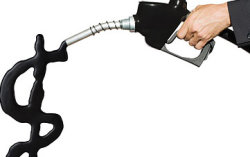

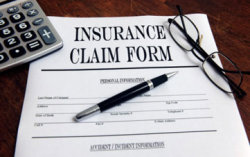

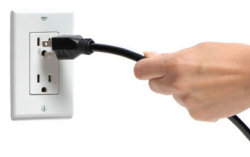



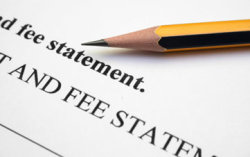
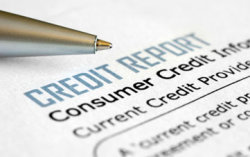


No comments:
Post a Comment